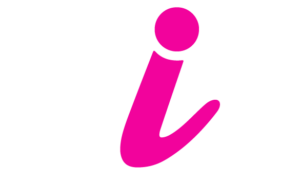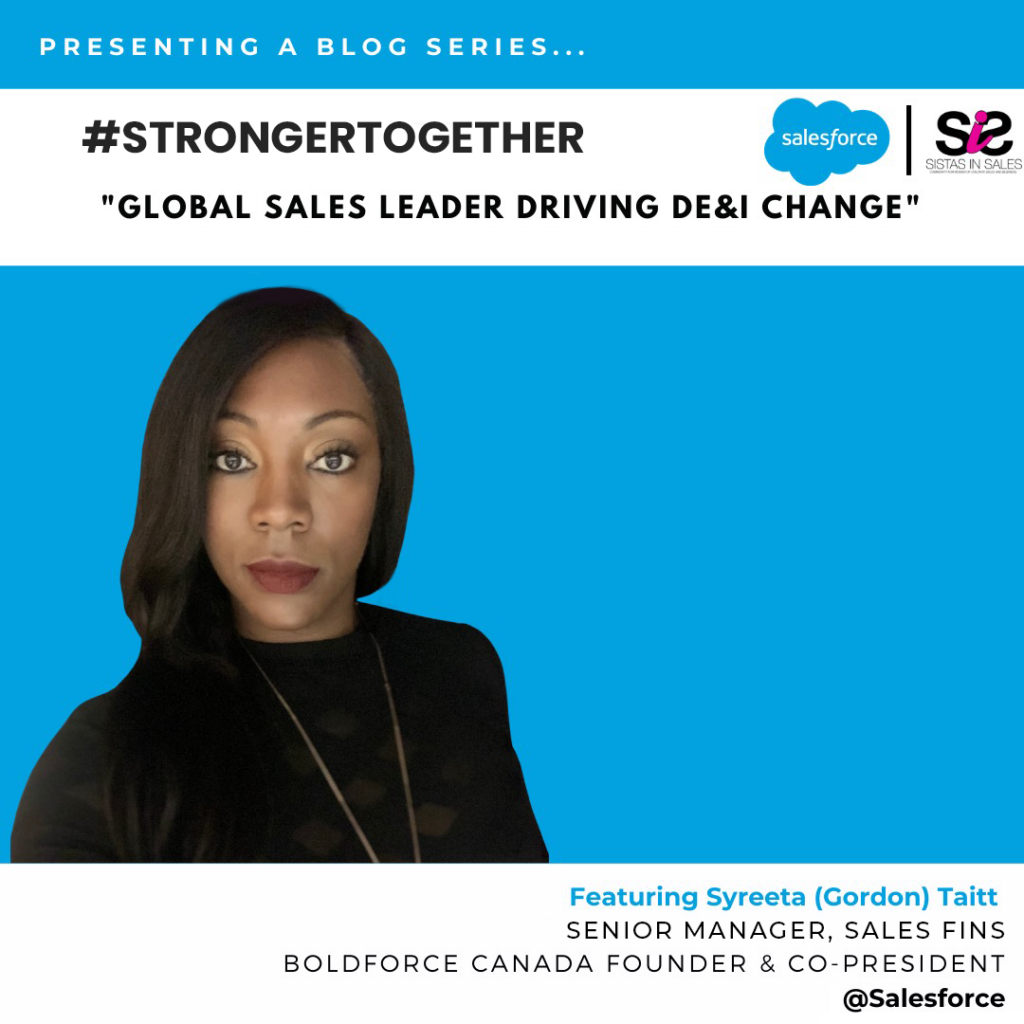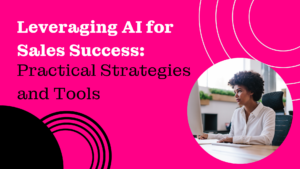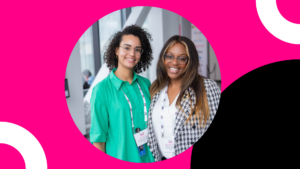Syreeta (Gordon) Taitt, a Senior Manager, Sales FINS. and BOLDforce Canada Founder & Co-President, shares how her desire to maintain work-life balance has impacted her career journey. She also talks about how her unique global background and experiences helped catapult her career. Check out Syreeta’s insights below to set yourself apart as a professional saleswoman of color.
Starting her career as a bilingual data translator, Syreeta saw first-hand how data provides valuable business insights. As a Customer Service Representative, her curiosity and desire to learn more led to a sales role. I asked her to tell us about her entry into sales.
I joined a tax and accounting software company to break into a technical role, and that’s where my love for software began. I worked in customer service, answering calls from account executives and customers about their software. I assisted them and described the features and functionalities of the software. I said to myself, “I am fielding these questions from the account executives; what do they do?” I started networking to understand what it means to be in sales. Shortly after, I was promoted to an internal account management role, selling the tax and accounting software.
When I moved into property management software and enterprise-style software sales, the company was using Salesforce. Afterwards, Salesforce reached out and asked if I would be interested in interviewing with them. The first time Salesforce reached out, I declined because the timing didn’t work well for me. When the company reached out again with a brand new role, it piqued my interest. The role was for a position in the healthcare and life sciences industry. My grandmother had recently passed away from cancer, so it was interesting to learn more about the U.S. health system and the kind of support that was in place.
You were recently promoted from leading an outbound Business Development Representative (BDR) team to now leading a small business FINS Sales team. Can you tell us about your transition into sales leadership and your Global BOLDforce role?
I wanted to get into a leadership role and understand more about what it’s like to be a leader at a company. My BDR team was prospecting into organizations to try to uncover opportunities and projects for the account executives. Learn more about our open roles at Salesforce here!
What excites me most is seeing the potential of my reps and seeing them realize that potential. I’m positive and always see the best in people. I always try to tell coworkers, direct reports, mentees, friends, etc., “I know that you can get promoted. I know that you can do this job and do it well, and I know you can do the next job well.” But until they believe it, it is not going to happen. The moment you see the switch, when they realize they can do this — that is amazing. It is similar to parenting. You tell your kids many things, repeatedly. You explain, and you try to show them the right way. You hope that they are listening, and then one day they finally turn around, and they say your words back to you or show you, with their own flavor. That is what excites me about leadership and my team. I’m seeing more and more everyday that they’re finding that courage to go above and beyond. It’s all them.
I also founded BOLDforce Canada, here in Toronto. BOLDforce, which stands for the Black Organization for Leadership and Development, is a Salesforce Equality group created to expand and empower Salesforce’s Black community.
BOLDforce started in the U.S., but there was no presence in Canada. I realized the culture at Salesforce’s Toronto office did not quite reflect the rich diversity of the city. I wanted to make sure there was a safe space for Black and Brown individuals to have conversations and, from a leadership and development standpoint, that they had a support system in place. I have also taken on a global BOLDforce role, in which I support BOLDforce globally from a growth standpoint. In this role, I ask myself: how can I make sure that we are continually retaining our Black employees and growing our number of Black employees, from internships to leadership roles? In general, my work with BOLDforce is to help ensure that there is a space for individuals to feel supported in their daily lives.
Learn more about Syreeta’s game changing work with BOLDforce and what it takes to become a successful saleswoman at Salesforce here.
Can you tell us more about your unique global background and experience?

My background is an interesting one, often referred to as a unicorn for my unique background and experience. I was born in the UK and my parents are Jamaican, so I’m Jamaican through and through. I was raised all over the world — that is where my bilingualism and love of languages comes from. And technology is really just another language. I spent over a decade of my life in Kenya and then another decade in Geneva, Switzerland, and then lived two years in the U.K. I came to Canada to continue my education, and, coming from Switzerland, hospitality was on the top of my mind. I attended Ryerson University in Toronto and studied hospitality and tourism with a minor in communications. I also continued studying French, which I learned while in Geneva. I quickly realized that I was not a fit for the hospitality field. I’m not the type to be working on holidays; I enjoy my holidays and weekends. And, of course, with two kids, it makes a whole lot more sense to have the stability of a Monday-to-Friday role. I believe that a person’s industry and company should support them and their values in all ways, shapes, and forms, whether they are a parent or not. I found that as a mother, I could do sales.
During the COVID-19 pandemic, we have seen an increase in the importance of work-life balance. Tell us how you make it work.
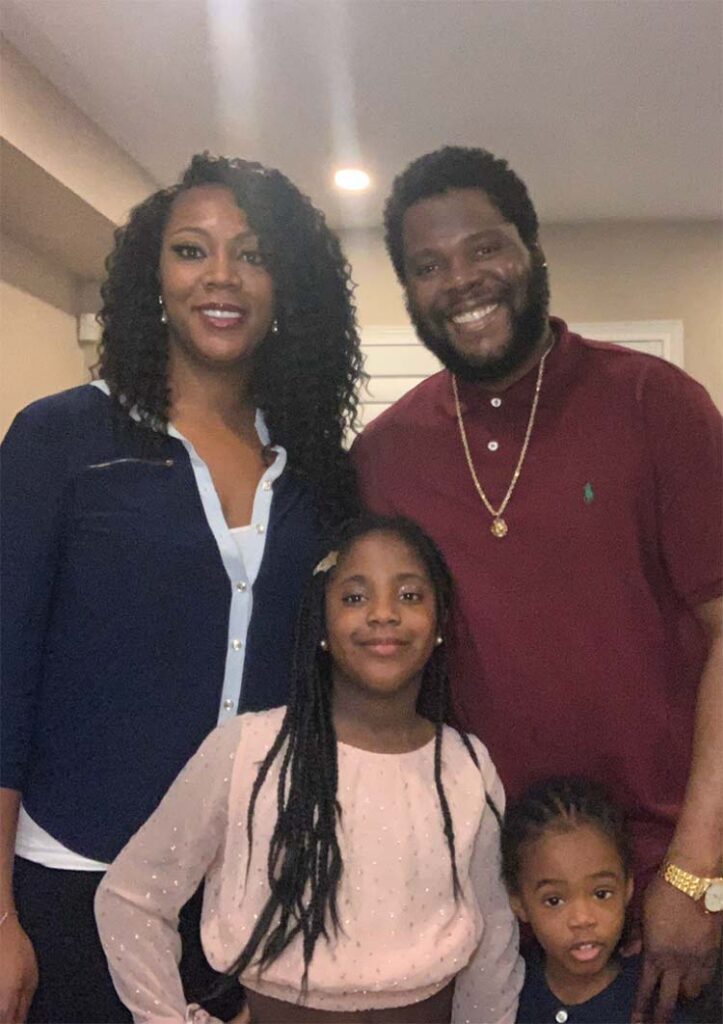
Growing up, both my parents worked and my mom was extremely busy. But, growing up in East Africa, we had the support system of a village. In North America, life is different. As an immigrant here, I do not have access to my familial support system because they do not live here. So Salesforce has become my support system. They said, “Look, if you need the time, take the time. Do not give it a second thought.” I always call my kids “colleagues” now that I am working from home; these are my new “coworkers” at my home office. I need a support system even more because we are home. My eight year-old daughter, Zahara, is doing school from home, and my three year-old son, Marcus, is in daycare. The support system is absolutely necessary, and if, for whatever reason, I don’t have my camera turned on on a certain day, there are no questions asked. From my manager up to my VP, they understand that it is probably one of those mornings or days.
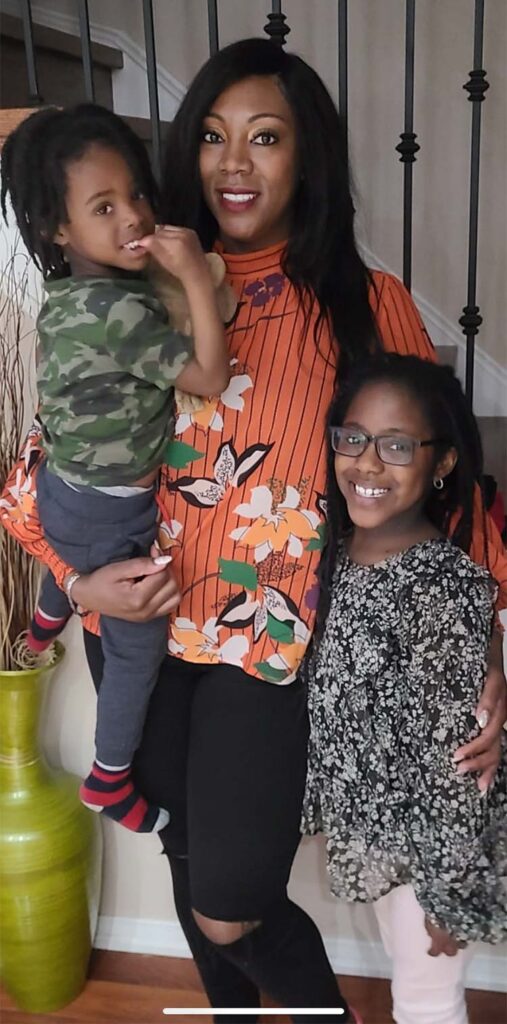
The VP in my business unit is also a mother, so she understands and makes sure the organization is here to support me. Do not be afraid to ask for help and do not shy away from the fact that you are a parent. I think, historically, moms have shied away from sharing that they are a parent, whether during an interview or just in conversation. I think parents tend to be super organized, resilient, and able to function on very little sleep. There are many things about being a parent that an employee could bring to the table, and people sometimes do not even realize the advantages of being a parent.
What are some of the biggest challenges you have had to face recently?
COVID-19 has been a great challenge for me. I am an independent woman. I have my family, but I enjoy traveling and being out on the road, being out with my customers, working, and then coming home. Working from home has blurred the lines between home and work to the point that I’ve had to take a step back to ask myself, “Am I paying enough attention to my kids? Am I paying enough attention to my husband? Am I paying enough attention at work? Am I paying enough attention to my household?” I am still working on compartmentalizing my home life and my work life. These issues pile on top of my imposter syndrome, which makes me ask myself, “Am I doing this right? Should I be doing something else?”
I encourage professional saleswomen to keep a list of their “Greatest Hits,” major accomplishments, or big deals they have closed. You keep a “brag book.” What’s important to you about yours?
Make sure that you have what we call a “brag book,” where you note all the little things you’re doing, whether they’re toward a specific project or your everyday job requirements. This is something I only learned to do recently. We as Black women typically go above and beyond our everyday roles and requirements. So how do we make sure that individuals in higher positions of power know we are working and working hard? Write it down. If somebody gives you a shout out, a “thank you,” or “amazing job,” put it in a document and make sure you have it. When it comes down to an interview, a promotion, or a bonus, whatever it is, you have that in your back pocket. I write as much as possible down because then I can say, “Hey, look at this amazing work I’ve done this year.” And if not for a job opportunity, do it for yourself because there are those moments where you’ll be like, “Oh my goodness, work is so hard. Life is hard; everything is rough.” But if you have that, even just take a glance, and say instead, “You know what? It is rough, but look at the amazing feats I’ve accomplished in the past six months, in the past year.” That will keep you going. Be your own cheerleader, keep your list of accomplishments handy, and soon you’ll realize just how amazing you are.

What tips do you have on how to set yourself apart as a professional saleswoman of color?
1. Prospecting: I would say a big portion of success is prospecting. Let’s call it the ability to say to yourself, I want to join this company. I need to find and network with a couple of people in the organization. That can be as simple as sending a LinkedIn message or an email to somebody to say, “Hey, I’ve done my research, I discovered X, Y, and Z, and I’m interested in pursuing a career. I would love to grab coffee with you to learn about your experience and understand a little bit more about the organization.” Be persistent in looking for opportunities outside your network so that when you step into that interview, you already have connections and insider knowledge.
2. Bring your true self: You can really bring your true self because you know you really want this role. Some people think to themselves, I’m going to act a little differently in this interview. I’m going to be more professional or more commanding. If you can’t be yourself in the interview, then who are you? It can get exhausting pretending to be somebody you’re not. Just be yourself and bring what you have to offer. If they don’t like it, they don’t like it. But at the end of the day, you remained true to yourself.
3. Courage: Looking back, I wish I had the courage a lot sooner to jump into sales and to jump into the tech world. I would have taken the opportunity to network more and have more conversations. If you have an open mind and a beginner’s mindset, then you can learn something from every conversation, whether it’s with someone in an entry-level role or a VP or CEO. At the end of the day, you can learn something from anybody. I always wish I had more conversations—more transparent conversations—and less fear in bringing my true self to work.
What is one message you want to share with Black or Brown women?
If you’re thinking about going into sales or if you’re already in sales, my advice is simply–go for it. You can do the job. I’m in sales now and I’m doing it well, and you can do it just as well—if not better. What I love about Black women, Black people in general, is that not only can we do the work, we do it with spice, zhuzh, sparkle, Black Girl Magic. Unfortunately, we don’t often see ourselves in leadership roles. The more Black women that occupy these spaces, the better we will all be. Often Black professionals reach out to me on LinkedIn saying, “Hey, I didn’t even realize this was a role that I could even consider.” So it’s not only about getting into those places, but also about opening the doors for others. I make sure I can leave my position a better place for somebody coming after me—that they don’t have to experience everything I experienced and that they have an easier path. So go for it; do it. We can do it.
What closing thoughts would you like to share?
Just keep going, because at the end of the day, it’s tough working as a Black woman. Corporate North America is not easy. I would also say, I’m more than happy to have conversations over coffee with anyone looking at sales or Salesforce or whatever it may be. I’m more than willing to have a conversation because it’s so important for me to open the door for others if I can.
If you are interested in working with the Salesforce team, apply here.
